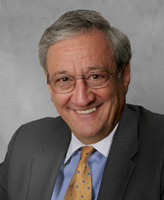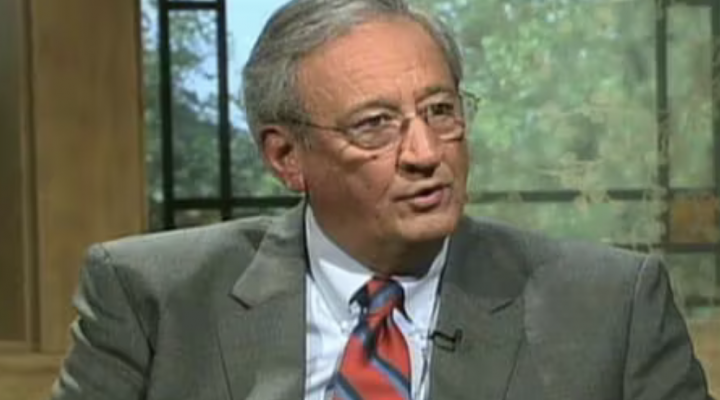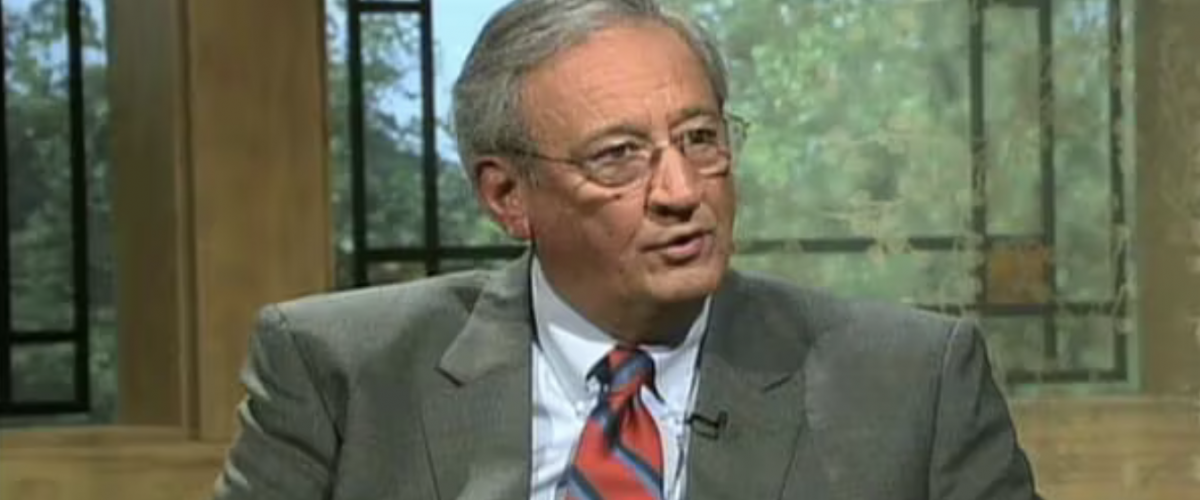C. Welton Gaddy, once a rising star among Southern Baptists who left to champion progressive causes and dedicated much of his life to religious liberty for all people, died at his home in Monroe, La., June 7. He was 81.
After leading Americans United for Separation of Church and State as president, Gaddy became president of Interfaith Alliance, a Washington-based advocate for religious freedom and democracy for all Americans, from 1997 to 2014.
Gaddy built Interfaith Alliance into one of the leading champions for rights not only of Christians, but of Jews and Muslims and people of other faiths, as well as LGBTQ people and vulnerable victims of bigotry and hate.

Welton Gaddy
Simultaneously, he served as pastor of Northminster Baptist Church in Monroe. He often insisted his experiences as pastor and as an advocate for freedom of religion strengthened his work in his congregation and in the nation’s capital.
A native of Paris, Tenn., Gaddy graduated from Union University, a Baptist school in Jackson, Tenn., and earned master of divinity and doctor of philosophy degrees from Southern Baptist Theological Seminary in Louisville, Ky.
Early in his career, Gaddy was director of Christian citizenship for the Southern Baptist Convention’s Christian Life Commission. He left to become pastor of Broadway Baptist Church in Fort Worth, Texas. Later, he was dean of the chapel at Mercer University in Macon, Ga., and pastor of Highland Hills Baptist Church in Macon.
In the 1980s, Gaddy was a member of the SBC Executive Committee. But as the convention moved steadily to the right, he invested his energies in moderate and progressive Baptist causes. He was one of the founders of the Alliance of Baptists, launched in 1987, which he later served as president. He also was a member of the general council of the Cooperative Baptist Fellowship, which began in 1991 when moderates and progressives left the SBC. He also served on the pastoral leadership commission of the Baptist World Alliance.
“Welton was a beloved leader, and his life should serve as an inspiration to everyone who cherishes both religious freedom and democracy,” said Paul Brandeis Raushenbush, president and CEO of Interfaith Alliance, who announced Gaddy’s death.
“Welton was a beloved leader, and his life should serve as an inspiration to everyone who cherishes both religious freedom and democracy.”
“Across so many areas, Welton used his platform to project a vision for America that was inclusive of different beliefs and respectful of every individual’s inherent dignity. He was unwilling to accept that any religious tradition in this country should take precedence over another.
“Most importantly, Welton stood as a source of inspiration to many. He showed us that it was possible to hold on to our faith while also fighting for the rights of others who did not share our religious tradition.”
“I loved Welton Gaddy. That puts me in the company of a lot of people in this world, which is poorer for our loss,” added Jack Moline, Gaddy’s immediate successor as leader of Interfaith Alliance. “The memories I will cherish the most are the conspiratorial conversations we had about making the world a better place for all. His charm, his intelligence, his integrity, his wit, his courage — they all came through in those conversations. …
“In my Jewish tradition, we respond to a loss like this with the prayer, ‘May his memory be a blessing.’ It is and will continue to be.”
In a statement, the Alliance of Baptists called Gaddy “an integral member of a small group of Baptists who were committed to ensuring that all Baptists were not synonymous with fundamentalism.”
“Over the years, he continued to be connected to the Alliance, providing his wisdom, friendship and blessing on our work. … While we know that many in our community are saddened and heartbroken by this news, his legacy will remain with all of us. And we will continue the work that he started,” the statement said.
While leading Interfaith Alliance, Gaddy launched “State of Belief,” a radio program that later became a podcast. It provided Gaddy a platform to present an alternative perspective on Christianity and faith from right-wing Christians who dominated the radio airwaves, such as Jerry Falwell and Pat Robertson, as well as conservative politicians who presented their beliefs and actions as the only legitimate form of Christianity.
“State of Belief” also afforded Gaddy an opportunity to feature minority religious voices, such as gay and lesbian Christians.
“It does not go without notice that we are remembering Welton just as the LGBTQ community is celebrating Pride Month,” Raushenbush said. “Welton wrote about full inclusion and dignity for LGBTQ people long before many other religious leaders.”
Gaddy was one of 20 international clergy who were members of the Council of 100 Leaders, created by the World Economic Forum to improve dialogue and understanding between the Western and Islamic worlds.
He wrote more than 20 books. He also appeared on numerous programs that examined the connections between religion, government and public affairs, including news and opinion shows on CNN, PBS, NBC, CBS, ABC, CNBC, C-SPAN and National Public Radio.
Gaddy is survived by his wife, Judy, his son, James, and two grandsons. Another son, John Paul, died in 2014.


